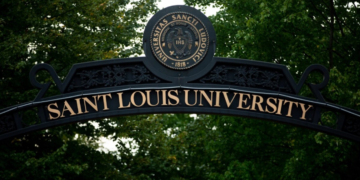Dec 26, 2024 Story by: Editor
Three years have passed since Detroit initiated its reparations journey, but residents recently learned the final report has been delayed. Many are now questioning the reasons behind the delay.
Challenges and Delays in Detroit
A 13-member reparations task force was announced in February 2023, with a significant delay caused by the COVID-19 pandemic and the unexpected death of former City Council Member JoAnn Watson in July 2022. Watson was a key advocate for reparations.
Led by three co-chairs appointed by City Council President Mary Sheffield and nine at-large members selected by the council, the task force began its work in April 2023. They were given an 18-month deadline to create a report detailing the harms suffered by Black Detroiters and recommendations for reparations.
As the original October 2024 deadline neared, concerns grew over the task force’s slow progress and perceived lack of inclusivity. Following an extension announcement, co-chair Keith Williams independently released a report, which the task force clarified was not the official version. The final report is now expected by March 2025.
A Broader Context of Struggles
Detroit’s hurdles reflect challenges faced by similar initiatives nationwide. In the past five years, 19 cities, including San Francisco, Evanston, Illinois, and Providence, Rhode Island, have introduced reparations efforts. Common difficulties include proving harm, designing reparative plans, defining eligibility, and ensuring transparency.
Developing reparations policies requires balancing administrative sustainability with political acceptance. While sustainable policies need secure funding and efficient implementation systems, politically acceptable plans must gain support from both the public and political figures.
For instance, reallocating funds from city services might be practical but could face opposition due to public disapproval. Detroit’s task force is navigating these complexities, supported by reports from University of Michigan and Columbia University scholars to guide their recommendations.
Public opinion in Detroit shows promise. Research indicates that support for reparations, including among white residents, is higher in Detroit than the national average, offering hope for success and reduced legal challenges.
Lessons from Evanston’s Experience
Evanston, Illinois, remains the only city to successfully implement reparations, funded by a $10 million program sourced from a cannabis tax. Proposed in 2002 and passed in 2019, the program offered $25,000 in housing grants to eligible Black residents or their descendants.
While 117 residents had received $2.95 million as of January 2024, critics highlight limitations. Scholars Monique Newton and Matthew Nelsen argue the program’s focus on homeownership excluded many Black residents, particularly renters. The researchers stressed the need for a policymaking process that prioritizes community input to ensure inclusivity and fairness.
Looking Ahead in Detroit
Detroit’s reparations task force has an opportunity to create a fair and impactful program by prioritizing balance, feasibility, and inclusivity. Public engagement through surveys and in-person meetings is a positive step.
Though slow progress has drawn criticism, the extra time allows the task force to gather input from a diverse range of voices, ensuring the final plan reflects the community’s needs. By learning from other cities and charting its own path, Detroit can address historical injustices and inspire similar efforts across the country. Source: Seattlepi

















